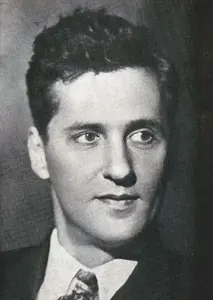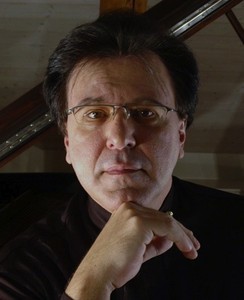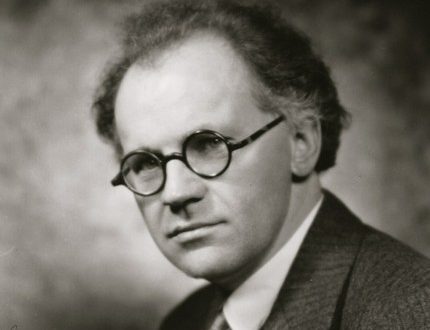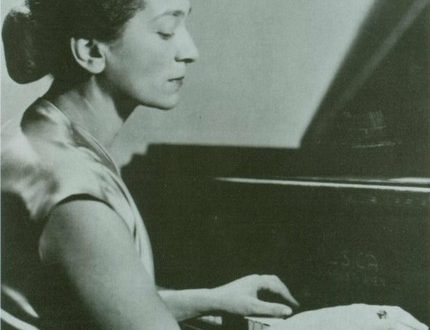
Vladimir Vladimirovich Sofronitsky |
Vladimir Sofronitsky

Vladimir Vladimirovich Sofronitsky is a unique figure in his own way. If, say, the performer “X” is easy to compare with the performer “Y”, to find something close, related, bringing them to a common denominator, then it is almost impossible to compare Sofronitsky with any of his colleagues. As an artist, he is one of a kind and cannot be compared.
On the other hand, analogies are easily found that connect his art with the world of poetry, literature, and painting. Even during the pianist’s lifetime, his interpreting creations were associated with Blok’s poems, Vrubel’s canvases, Dostoevsky’s and Green’s books. It is curious that something similar happened at one time with Debussy’s music. And he could not find any satisfactory analogues in the circles of his fellow composers; at the same time, contemporary musician criticism easily found these analogies among poets (Baudelaire, Verlaine, Mallarmé), playwrights (Maeterlinck), painters (Monet, Denis, Sisley and others).
- Piano music in the Ozon online store →
To stand apart in art from one’s brothers in the creative workshop, at a distance from those who are similar in face, is the privilege of truly outstanding artists. Sofronitsky undoubtedly belonged to such artists.
His biography was not rich in external remarkable events; there were no special surprises in it, no accidents that suddenly and abruptly change fate. When you look at the chronograph of his life, one thing catches your eye: concerts, concerts, concerts … He was born in St. Petersburg, in an intelligent family. His father was a physicist; in the pedigree you can find the names of scientists, poets, artists, musicians. Almost all biographies of Sofronitsky say that his maternal great-great-grandfather was an outstanding portrait painter of the late XNUMXth – early XNUMXth century Vladimir Lukich Borovikovsky.
From the age of 5, the boy was drawn to the world of sounds, to the piano. Like all truly gifted children, he loved to fantasize at the keyboard, play something of his own, pick up randomly heard melodies. He early showed a sharp ear, a tenacious musical memory. Relatives had no doubts that it should be taught seriously and as soon as possible.
From the age of six, Vova Sofronitsky (his family lives in Warsaw at that time) begins to take piano lessons from Anna Vasilievna Lebedeva-Getsevich. A pupil of N. G. Rubinshtein, Lebedeva-Getsevich, as they say, was a serious and knowledgeable musician. In her studies, measuredness and iron order reigned; everything was consistent with the latest methodological recommendations; assignments and instructions were carefully recorded in the diaries of students, their implementation was strictly controlled. “The work of every finger, every muscle did not escape her attention, and she persistently sought to eliminate any harmful irregularity” (Sofronitsky V.N. From the memoirs // Memories of Sofronitsky. – M., 1970. P. 217)– writes in his memoirs Vladimir Nikolayevich Sofronitsky, the pianist’s father. Apparently, the lessons with Lebedeva-Getsevich served his son in good stead. The boy moved quickly in his studies, was attached to his teacher, and later recalled her more than once with a grateful word.
… Time passed. On the advice of Glazunov, in the autumn of 1910, Sofronitsky went under the supervision of a prominent Warsaw specialist, professor at the Conservatory Alexander Konstantinovich Mikhalovsky. At this time, he became more and more interested in the musical life surrounding him. He attends piano evenings, hears Rachmaninov, young Igumnov, and the famous pianist Vsevolod Buyukli, who were touring in the city. An excellent performer of Scriabin’s works, Buyukli had a strong influence on the young Sofronitsky – when he was in his parents’ house, he often sat down at the piano, willingly and played a lot.
Several years spent with Mikhalovsky had the best effect on the development of Safronitsky as an artist. Michalovsky himself was an outstanding pianist; a passionate admirer of Chopin, he quite often appeared on the Warsaw stage with his plays. Sofronitsky studied not just with an experienced musician, an efficient teacher, he was taught concert performer, a man who knew the scene and its laws well. That was what mattered and was important. Lebedeva-Getsevich brought him undoubted benefits in her time: as they say, she “put her hand in”, laid the foundations of professional excellence. Near Mikhalovsky, Sofronitsky first felt the exciting aroma of the concert stage, caught its unique charm, which he loved forever.
In 1914, the Sofronitsky family returned to St. Petersburg. The 13-year-old pianist enters the conservatory to the famous master of piano pedagogy Leonid Vladimirovich Nikolaev. (Apart from Sofronitsky, his students at various times included M. Yudina, D. Shostakovich, P. Serebryakov, N. Perelman, V. Razumovskaya, S. Savshinsky and other well-known musicians.) Sofronitsky was still lucky to have teachers. With all the difference in characters and temperaments (Nikolaev was restrained, balanced, invariably logical, and Vova was passionate and addicted), creative contacts with the professor enriched his student in many ways.
It is interesting to note that Nikolaev, not too extravagant in his affections, quickly took a liking to the young Sofronitsky. It is said that he often turned to friends and acquaintances: “Come listen to a wonderful boy … It seems to me that this is an outstanding talent, and he is already playing well.” (Leningrad Conservatory in Memoirs. – L., 1962. S. 273.).
From time to time Sofronitsky takes part in student concerts and charity events. They notice him, they speak more insistently and louder about his great, charming talent. Already not only Nikolaev, but also the most far-sighted of the Petrograd musicians – and behind them some of the reviewers – predict a glorious artistic future for him.
… The conservatory is finished (1921), the life of a professional concert player begins. The name of Sofronitsky can be found more and more often on the posters of his native city; the traditionally strict and demanding Moscow public gets to know him and gives him a warm welcome; it is heard in Odessa, Saratov, Tiflis, Baku, Tashkent. Gradually, they learn about it almost everywhere in the USSR, where serious music is revered; he is put on a par with the most famous performers of that time.
(A curious touch: Sofronitsky never participated in music competitions and, by his own admission, did not like them. Glory was won by him not at competitions, not in single combat somewhere and with someone; least of all he owes it to the capricious game of chance, which, it happens that one will be lifted up a few steps, the other undeservedly relegated to the shade.He came to the stage the way he came before, in pre-competition times – by performances, and only by them, proving his right to concert activity.)
In 1928 Sofronitsky went abroad. With success are his tours in Warsaw, Paris. About a year and a half he lives in the capital of France. Meets with poets, artists, musicians, gets acquainted with the art of Arthur Rubinstein, Gieseking, Horowitz, Paderewski, Landowska; seeks advice from a brilliant master and expert in pianism, Nikolai Karlovich Medtner. Paris with its age-old culture, museums, vernissages, richest treasury of architecture gives the young artist a lot of vivid impressions, makes his artistic vision of the world even sharper and sharper.
After parting with France, Sofronitsky returns to his homeland. And again traveling, touring, large and little-known philharmonic scenes. Soon he begins to teach (he is invited by the Leningrad Conservatory). Pedagogy was not destined to become his passion, vocation, life’s work – as, say, for Igumnov, Goldenweiser, Neuhaus or his teacher Nikolaev. And yet, by the will of circumstances, he was tied to her until the end of his days, he sacrificed a lot of time, energy and strength.
And then come the autumn and winter of 1941, a time of incredibly difficult trials for the people of Leningrad and for Sofronitsky, who remained in the besieged city. Once, on December 12, in the most nightmarish days of the blockade, his concert took place – an unusual one, forever sunk into the memory of him and many others. He played at the Pushkin Theater (formerly Alexandrinsky) for the people who defended his Leningrad. “It was three degrees below zero in the Alexandrinka hall,” Sofronitsky later said. “The listeners, the defenders of the city, were sitting in fur coats. I played in gloves with fingertips cut out… But how they listened to me, how I played! How precious these memories are… I felt that the listeners understood me, that I had found the way to their hearts…” (Adzhemov K. X. Unforgettable. – M., 1972. S. 119.).
Sofronitsky spends the last two decades of his life in Moscow. At this time, he is often ill, sometimes he does not appear in public for months. The more impatiently they wait for his concerts; each of them becomes an artistic event. Maybe even a word concert not the best when it comes to Sofronitsky’s later performances.
These performances at one time were called differently: “musical hypnosis”, “poetic nirvana”, “spiritual liturgy”. Indeed, Sofronitsky did not just perform (well, excellently performed) this or that program indicated on the concert poster. While playing music, he seemed to be confessing to people; He confessed with the utmost frankness, sincerity and, what is very important, emotional dedication. About one of the songs of Schubert – Liszt, he mentioned: “I want to cry when I play this thing.” On another occasion, having presented the audience with a truly inspired interpretation of Chopin’s B-flat minor sonata, he admitted, having gone into the artistic room: “If you worry like that, then I won’t play it more than a hundred times.” Really relive the music being played so, as he experienced at the piano, was given to a few. The public saw and understood this; here lay the clue to the unusually strong, “magnetic”, as many assured, the impact of the artist on the audience. From his evenings, it used to be that they left silently, in a state of concentrated self-deepening, as if in contact with a secret. (Heinrich Gustovovich Neuhaus, who knew Sofronitsky well, once said that “the stamp of something extraordinary, sometimes almost supernatural, mysterious, inexplicable and powerfully attracting to itself always lies on his game …”)
Yes, and the pianists themselves yesterday, meetings with the audience also sometimes took place in their own, special way. Sofronitsky loved small, cozy rooms, “his” audience. In the last years of his life, he most willingly played in the Small Hall of the Moscow Conservatory, in the House of Scientists and – with the greatest sincerity – in the House-Museum of A. N. Scriabin, the composer whom he idolized almost from a young age.
It is noteworthy that in Sofronitsky’s play there was never a cliché (a depressing, boring game cliché that sometimes devalues the interpretations of notorious masters); interpretive template, hardness of form, coming from super-strong training, from the scrupulous “made” program, from the frequent repetition of the same pieces on various stages. A stencil in musical performance, a petrified thought, were the most hateful things for him. “It’s very bad,” he said, “when, after the initial few bars taken by a pianist in a concerto, you already imagine what will happen next.” Of course, Sofronitsky studied his programs for a long time and carefully. And he, for all the boundlessness of his repertoire, had occasion to repeat in concerts previously played. But – an amazing thing! – there was never a stamp, there was no feeling of “memorization” of what they said from the stage. For he was creator in the true and high sense of the word. “…Is Sofronitsky executor? V. E. Meyerhold exclaimed at one time. “Who would turn his tongue to say this?” (Saying the word executor, Meyerhold, as you might guess, meant performer; didn’t mean musical performance, and the musical diligence.) Indeed: can one name a contemporary and colleague of a pianist, in whom the intensity and frequency of the creative pulse, the intensity of creative radiation would be felt to a greater extent than in him?
Sofronitsky always created on the concert stage. In musical performance, as in the theatre, it is possible to present to the public the finished result of a well-executed work ahead of time (as, for example, the famous Italian pianist Arturo Benedetti Michelangeli plays); one can, on the contrary, sculpt an artistic image right there, in front of the audience: “here, today, now,” as Stanislavsky wanted. For Sofronitsky, the latter was the law. Visitors to his concerts did not get to the “opening day”, but to a kind of creative workshop. As a rule, yesterday’s luck as an interpreter did not suit the musician who worked in this workshop – so it was already… There is a type of artist who, in order to move forward, constantly needs to reject something, to leave something. It is said that Picasso made about 150 preliminary sketches for his famous panels “War” and “Peace” and did not use any of them in the last, final version of the work, although many of these sketches and sketches, according to competent eyewitness accounts, were excellent. Picasso organically could not repeat, duplicate, make copies. He had to search and create every minute; sometimes discard what was previously found; over and over again to solve the problem. Decide somehow differently than, say, yesterday or the day before yesterday. Otherwise, creativity itself as a process would lose its charm, spiritual delight, and specific flavor for him. Something similar happened with Sofronitsky. He could play the same thing twice in a row (as happened to him in his youth, on one of the clavirabends, when he asked the public for permission to repeat Chopin’s impromptu, which did not satisfy him as an interpreter) – the second “version” is necessarily something any different from the first. Sofronitsky should have repeated after Mahler the conductor: “It is unimaginably boring for me to lead a work along one beaten path.” He, in fact, more than once expressed himself in this way, although in different words. In a conversation with one of his relatives, he somehow dropped: “I always play differently, always differently.”
These “unequal” and “different” brought a unique charm to his game. It always guessed something from improvisation, momentary creative search; earlier it was already said that Sofronitsky went to the stage create – do not recreate. In conversations, he assured – more than once and with every right to do so – that he, as an interpreter, always has a “solid plan” in his head: “before the concert, I know how to play until the last pause.” But then he added:
“Another thing is during a concert. It can be the same as at home, or it can be completely different.” Just like at home – similar – He didn’t have…
There were in this pluses (huge) and minuses (presumably inevitable). There is no need to prove that improvisation is a quality as precious as it is rare in today’s practice of music interpreters. To improvise, to give in to intuition, performing on the stage a work painstakingly and for a long time being studied, to get off the knurled track at the most crucial moment, only an artist with a rich imagination, audacity, and ardent creative imagination can do this. The only “but”: you can’t, subordinating the game “to the law of the moment, the law of this minute, a given state of mind, a given experience …” – and it was in these expressions that G. G. Neuhaus described Sofronitsky’s stage manner – it’s impossible, apparently, to always be the same happy in their finds. To be honest, Sofronitsky did not belong to equal pianists. Stability was not among his virtues as a concert performer. Poetic insights of extraordinary power alternated with him, it happened, with moments of apathy, psychological trance, internal demagnetization. The brightest artistic successes, no, no, yes, interspersed with insulting failures, triumphal ups – with unexpected and unfortunate breakdowns, creative heights – with “plateaus” that deeply and sincerely upset him …
Those close to the artist knew that it was never possible to predict with at least some certainty whether his upcoming performance would be successful or not. As is often the case with nervous, fragile, easily vulnerable natures (once he said about himself: “I live without skin”), Sofronitsky was far from always able to pull himself together before a concert, concentrate his will, overcome a spasm of anxiety, find peace of mind. Indicative in this sense is the story of his student I. V. Nikonovich: “In the evening, an hour before the concert, at his request, I often called for him by taxi. The road from home to the concert hall was usually very difficult … It was forbidden to talk about music, about the upcoming concert, of course, about extraneous prosaic things, to ask all sorts of questions. It was forbidden to be overly exalted or silent, to distract from the pre-concert atmosphere or, conversely, to focus attention on it. His nervousness, inner magnetism, anxious impressionability, conflict with others reached their climax in these moments. (Nikonovich I. V. Memories of V. V. Sofronitsky // Memories of Sofronitsky. S. 292.).
The excitement that tormented almost all concert musicians exhausted Sofronitsky almost more than the rest. The emotional overstrain was at times so great that all the first numbers of the program, and even the entire first part of the evening, went, as he himself said, “under the piano.” Only gradually, with difficulty, did not soon come inner emancipation. And then the main thing came. Sofronitsky’s famous “passes” began. The thing for which crowds went to the concerts of the pianist began: the holy of holies of music was revealed to people.
Nervousness, psychological electrification of Sofronitsky’s art were felt by almost every one of his listeners. The more perceptive, however, guessed something else in this art – its tragic overtones. This is what distinguished him from musicians who seemed to be close to him in their poetic aspirations, the warehouse of a creative nature, the romanticism of the worldview, such as Cortot, Neuhaus, Arthur Rubinstein; put on its own, a special place in the circle of contemporaries. Musical criticism, which analyzed Sofronitsky’s playing, really had no choice but to turn in search of parallels and analogies to literature and painting: to the confused, anxious, twilightly colored artistic worlds of Blok, Dostoevsky, Vrubel.
People who stood next to Sofronitsky write about his eternal craving for the dramatically sharpened edges of being. “Even in moments of the most cheerful animation,” recalls A.V. Sofronitsky, the son of a pianist, “some tragic wrinkle did not leave his face, it was never possible to catch an expression of complete satisfaction on him.” Maria Yudina spoke of his “suffering appearance”, “vital restlessness…” Needless to say, the complex spiritual and psychological collisions of Sofronitsky, a man and an artist, affected his game, gave it a very special imprint. At times this game became almost bleeding in its expression. Sometimes people cried at the pianist’s concerts.
It is now mainly about the last years of Sofronitsky’s life. In his youth, his art was in many ways different. Criticism wrote about “exaltations”, about the “romantic pathos” of the young musician, about his “ecstatic states”, about “generosity of feelings, penetrating lyricism” and the like. So he played the piano opuses of Scriabin, and the music of Liszt (including the B minor sonata, with which he graduated from the conservatory); in the same emotional and psychological vein, he interpreted the works of Mozart, Beethoven, Schubert, Schumann, Chopin, Mendelssohn, Brahms, Debussy, Tchaikovsky, Rachmaninov, Medtner, Prokofiev, Shostakovich and other composers. Here, probably, it would be necessary to specifically stipulate that everything performed by Sofronitsky cannot be listed – he kept hundreds of works in his memory and in his fingers, could announce (which, by the way, he did) more than a dozen concert programs, without repeating in any of them: his repertoire was truly boundless.
Over time, the emotional revelations of the pianist become more restrained, affectation gives way to the depth and capacity of experiences, which have already been mentioned, and quite a lot. The image of the late Sofronitsky, an artist who survived the war, the terrible Leningrad winter of forty-one, the loss of loved ones, crystallizes in its outlines. Probably play sohow he played in his declining years, it was only possible to leave behind his life path. There was a case when he bluntly said about this to a student who was trying to portray something at the piano in the spirit of her teacher. People who visited the pianist’s keyboard bands in the forties and fifties are unlikely to ever forget his interpretation of Mozart’s C-minor fantasy, Schubert-Liszt songs, Beethoven’s “Apassionata”, Tragic Poem and Scriabin’s last sonatas, Chopin’s pieces, Fa- sharp-minor sonata, “Kreisleriana” and other works by Schumann. The proud majesty, almost monumentalism of Sofronitsky’s sound constructions will not be forgotten; sculptural relief and bulge of pianistic details, lines, contours; extremely expressive, soul-scaring “deklamato”. And one more thing: the more and more clearly manifested lapidarity of the performing style. “He began to play everything much simpler and stricter than before,” noted musicians who knew his manner thoroughly, “but this simplicity, laconism and wise detachment shocked me like never before. He gave only the most naked essence, like a certain ultimate concentrate, a clot of feeling, thought, will … having gained the highest freedom in unusually stingy, compressed, restrainedly intense forms. (Nikonovich I. V. Memories of V. V. Sofronitsky // Cited ed.)
Sofronitsky himself considered the period of the fifties the most interesting and significant in his artistic biography. Most likely, it was so. The sunset art of other artists is sometimes painted in completely special tones, unique in their expressiveness – the tones of the life and creative “golden autumn”; those tones that are like a reflection are discarded by spiritual enlightenment, deepening into oneself, condensed psychologism. With indescribable excitement, we listen to Beethoven’s last opuses, look at the mournful faces of Rembrandt’s old men and women, captured by him shortly before his death, and read the final acts of Goethe’s Faust, Tolstoy’s Resurrection or Dostoevsky’s The Brothers Karamazov. It fell to the post-war generation of Soviet listeners to get in touch with the real masterpieces of musical and performing arts – the masterpieces of Sofronitsky. Their creator is still in the hearts of thousands of people, gratefully and lovingly remembering his wonderful art.
G. Tsypin





